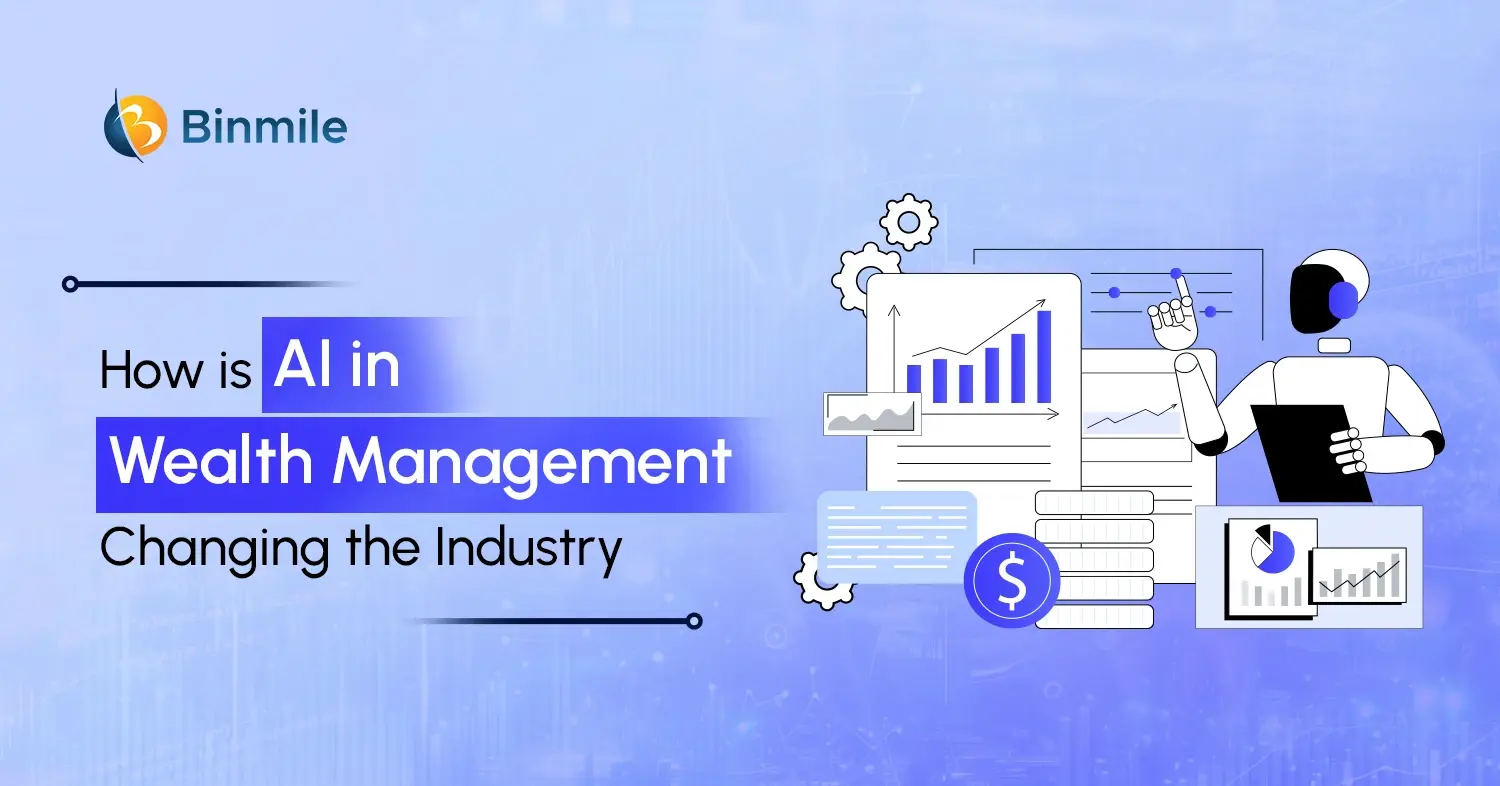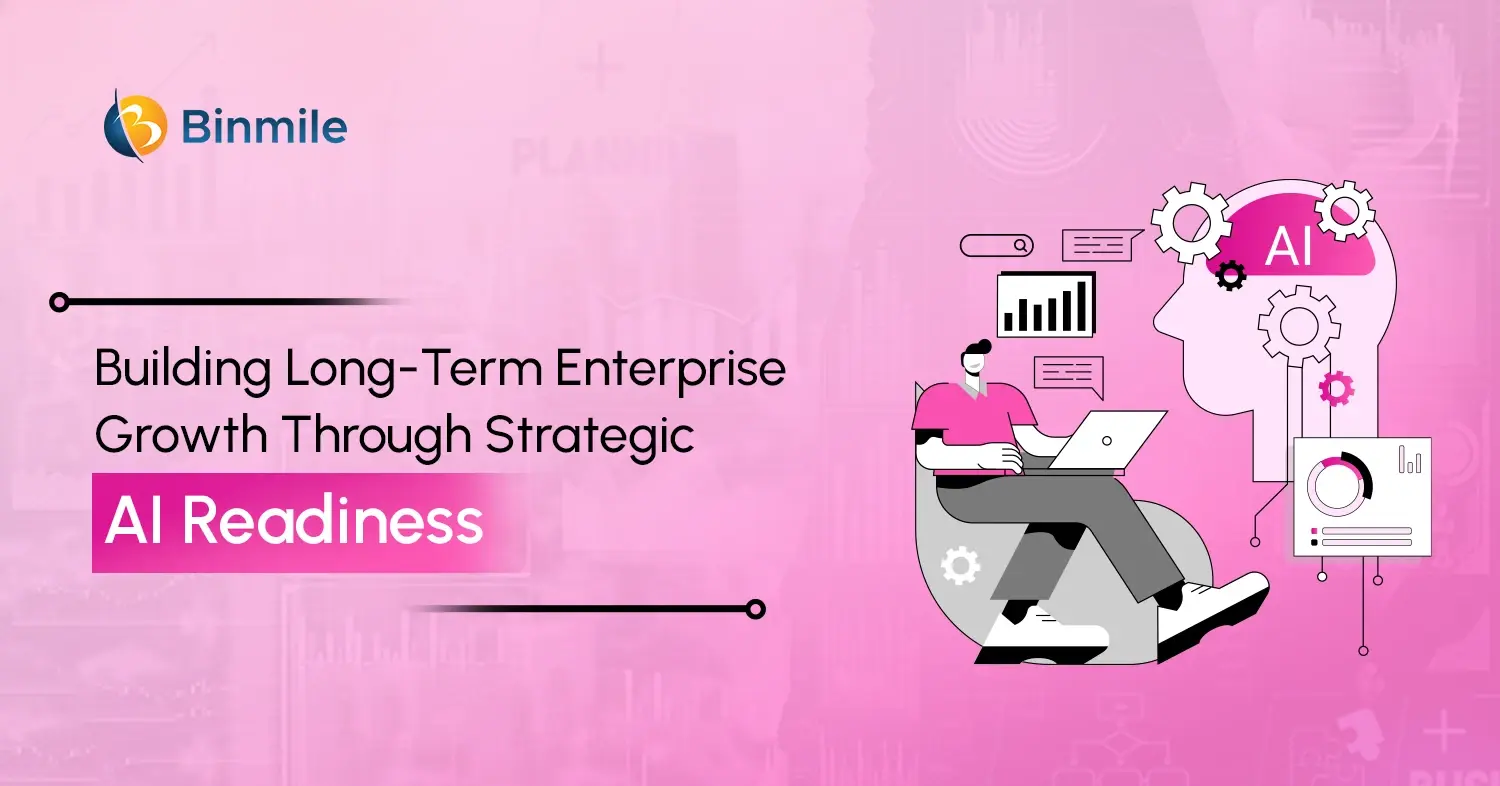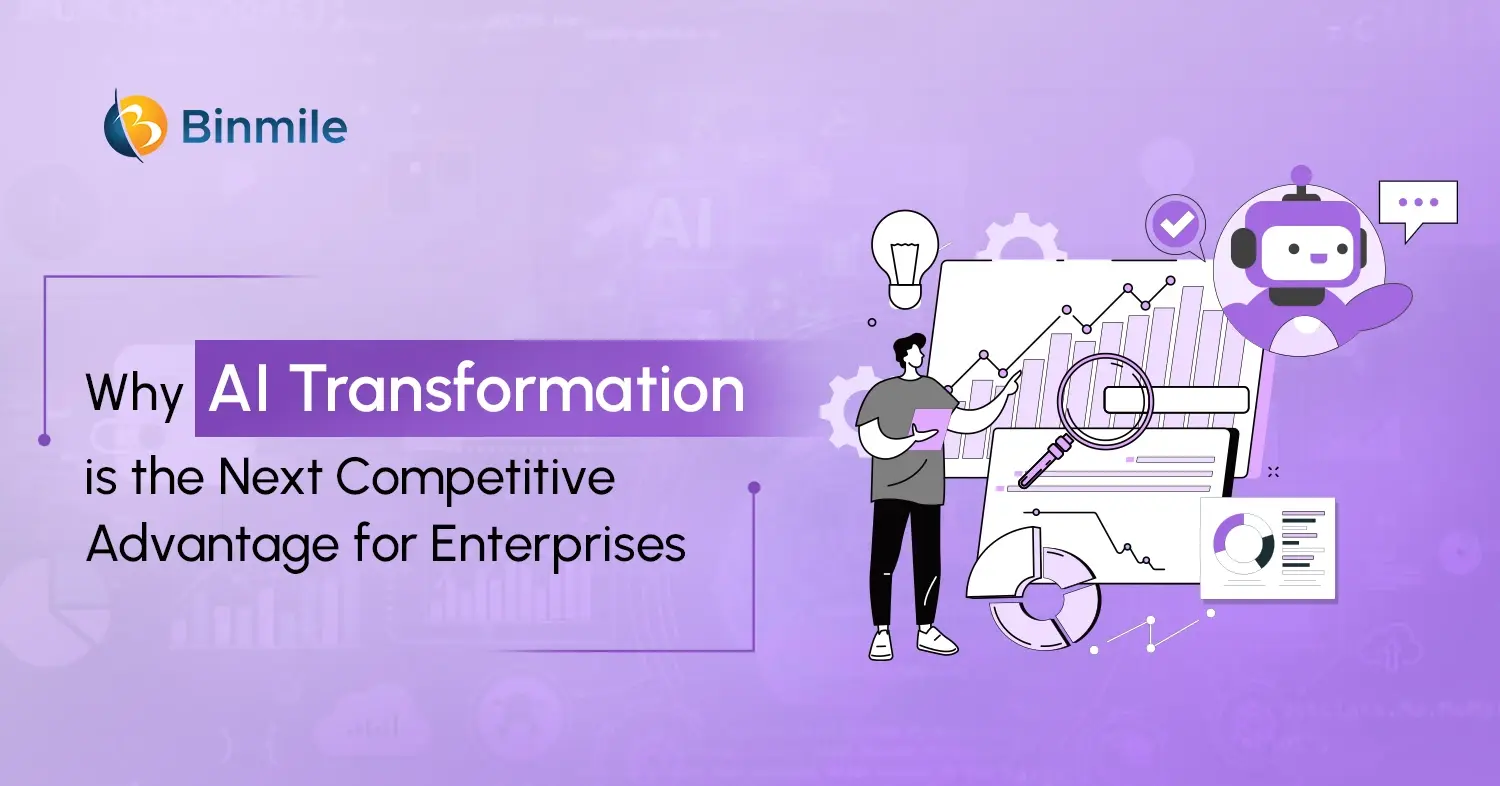AI is continuously making an impact in different industries, and every business wants to take advantage to secure a top position in their market. This cutting-edge technology comes in handy to streamline business operations by improving employee efficiency and encouraging customer satisfaction. When it comes to the use of AI in travel, this state-of-the-art technology has several things to offer, like personalized experiences, operational efficiency, safety, and sustainability. This is the reason the travel industry has embraced AI-driven technology so effectively, and its market is expected to touch the $1.2 billion mark by 2026, based on some market research reports.
So, if you are considering building an AI-powered app for your travel business, this blog will help you explore how AI is revolutionizing the travel landscape, the top use cases, and the cost considerations you need to know.
What is AI?
AI is the abbreviation for Artificial Intelligence, which is a branch of computer science prioritizing the simulation of human intelligence through machines and computers. In the world of Artificial Intelligence, machines are coded to think like human beings and execute tasks that only living individuals can do. Besides that, AI makes the most of the problem-solving and decision-making abilities of humans to perform various tasks.
How is AI in Travel Changing the Tourism Industry?
At present, AI development services have been integrated into different areas of the travel and tourism industry, making lives easier for commuters across the globe. For example, there are some commonly used forms of Artificial Intelligence in airports, like facial recognition systems and airport security scanning devices.
Top 8 Benefits of AI in the Travel Industry
AI enhances the travel industry by streamlining processes that are usually managed by human beings, thus reducing bugs to a great extent. By making the most of AI in tourism, the travel sector can forecast travel preferences, provide personalized solutions, improve customer service, and facilitate in-trip and post-trip management. Let’s discuss these things and other important benefits of Artificial Intelligence in the tourism field.

1. Personalized Experience
Businesses can leverage past behavior, demographics, and other relevant information of users to offer personalized suggestions for destinations, accommodations, and dining options. By getting a deep understanding of user intent and preferences, organizations can design customized journeys and offers that fit the needs of every traveler. Personalized experiences powered by AI innovations in Dubai bolster emotional connections with consumers, leading to repeated sales and word-of-mouth referrals.
2. Precise Data Analysis
AI-driven data analysis tools allow tourism companies to fetch fruitful insights from massive and complicated data sets. ML algorithms analyze historical data to recognize trends, patterns, and correlations. It provides organizations with actionable insights into consumer behavior and market dynamics. Resultantly, you can create marketing strategies, take product development initiatives, and achieve operational optimization to react to the trends quickly. Leveraging precise data analysis with the use of AI in the travel industry enables companies to forecast market trends, minimize risks, and monetize new opportunities.
3. Operational Efficiency
Using AI in the travel industry is one of the best ways to boost your overall efficiency. With predictive analytics, you can effectively reassign resources and enhance inventory levels. Automating routine processes lowers manual workload, allowing personnel to concentrate on more intricate and strategic tasks. Consequently, you optimize productivity and reduce defects, driving down wait times to a large extent.
4. Sustainable Tourism
Predictive analytics algorithms improve transport routes, minimizing fuel consumption and carbon dioxide emissions, and increasing efficiency. AI-based tracking systems monitor energy use, water consumption, and waste generation. This way, you discover opportunities to enhance efficiency and save resources. By fostering responsible tourism and backing environmental initiatives, AI in travel and transport helps conserve natural habitats and cultural heritage.
5. Accurate Forecasting
ML algorithms analyze historical information, market trends, and other factors to make valid predictions regarding bookings, revenue, and resource consumption. It simplifies strategic planning, resource allocation, and cost decisions, assisting you in improving operations. Precise predictions mitigate overbooking and revenue loss risks, ensuring optimum productivity and profitability. Thus, if you also want to accomplish the best possible productivity and profitability for your organization, hire a mobile app developer.
6. Better Price Matching
Better price matching contributes to buyer satisfaction, resulting in robust loyalty and repeat sales. This helps grow your income big time when you integrate AI in the travel and tourism industry. Dynamic pricing models ensure changing prices in real-time depending on demand, availability, and customer segmentation. Analyze a considerable amount of data to decide the best possible pricing strategy for every product or service. And then, implement competitive prices that show the:
- Market demand
- Competitor prices
- Buyer preferences
7. Sales & Marketing Improvement
Sales and marketing software based on Enterprise AI solutions empowers tourism companies to target the right audience and ramp up conversion rates. For instance, recommendation engines render customized content and offers, augmenting engagement and conversion aggressively. Predictive analytics algorithms recognize high-value segments and adjust marketing campaigns in the same order. Automated marketing platforms enhance ad placement, timing, and messaging, increasing return on investment to a big extent.
8. Fraud Prevention
Use AI in the travel industry to minimize the risk of payment fraud, identity theft, and account takeover by identifying potential threats before they cause financial or reputational damage. Fraud detection using ML is a key component of this strategy, as machine learning algorithms analyze user behavior, transaction data, and historical patterns to discover any suspicious activities or irregularities in real time. AI technologies safeguard businesses and consumers from possible security threats by offering a secure ecosystem for transactions and interactions.
AI is the secret sauce behind effortless journeys and smarter travel experiences. Unlock its true potential by exploring the future of travel, before everyone else does.
7 Best Use Cases of AI in Travel and Tourism
You are probably familiar with most of these applications of AI in travel and transport, but you have never paid heed to their real potential. It is time to learn about them more closely.

1: Smart Booking Assistants
With the advent of modern online services, customers do not need to visit travel companies to plan their trips. By using AI in travel, tourism agencies have advanced a lot by eliminating customers’ need to have a conversation with travel agents to make essential arrangements. AI-powered chatbots answer all the questions of potential travelers.
Our Gen AI development company helps organizations build smart chatbots that help in booking flights, hotels, and even car rentals. AI-backed assistants are typically incorporated into messengers or social media sites, offering a smooth and natural-appearing service experience. In fact, as per a 2023 study, online travel agencies accounted for almost 32% of online travel bookings in the USA. What’s more? The OTA (Online Travel Agency) booking share could grow by roughly 15% points by 2028, leading to 46.7% if there are no travel suppliers’ AI investments. And that’s where intelligent chatbots can help in online travel bookings.
Real-life Example:
Large market players, like Booking.com or Skyscanner, have been using intelligent assistants for quite some time. This interaction is simple but beneficial for all users. All a visitor needs to do is enter destination points, and chatbots give all the necessary information depending on dynamic prices and availability.
2: Flight Forecasting
Any individual who travels by aircraft knows how difficult it is to book a plane ticket at the minimum price. But what if we tell you that AI in the tourism industry can do all the hard work? Yes, cutting-edge AI apps in this industry help people discover the most profitable deals and offer cost predictions.
Real-life Example:
Hopper is the most famous platform that comes with flight booking and prediction functionalities. Platform creators adopted an advanced ML algorithm enabling a consumer to book flight tickets and hotel rooms at the lowest price, even a year in advance. Now, if you also want to come up with a similar flight booking app development anytime soon, all you need to do is get in touch with a renowned AI development agency.
3: Sentiment Analysis
Each user has a unique identity and presence on social media platforms. We share photos, videos, and other media content for our family and friends to see. We do it very often, and modern technologies are aware of our actions. With the help of natural language processing (NLP), machine learning (ML), and AI in the travel industry, businesses from this sector get an in-depth view of what people think about their service in real-time. Simply understand that they monitor users’ sentiments on social media sites or other online resources.
Real-life Example:
You can find multiple off-the-shelf solutions to track user reviews and perform sentiment analysis in real-time. A few cases in point here are Qualaroo from IBM Watson and Service Hub from HubSpot.
4: Facial Recognition
Facial recognition is the next application of AI in the transportation industry that has been gaining ground for quite some time. As the name indicates, this feature helps recognize a person by comparing their facial traits with images stored in the database.
This use case of AI in travel is already deployed at airports, hotels, railway stations, and other public places to offer patrons easy access to multiple facilities and save their time. What else? This feature also promises a high level of security for a specific business and its employees.
Real-life Example:
The best example of how using AI in the transportation industry has emerged as a breakthrough is the use of facial recognition systems by the U.S. CBP (Customs and Border Protection) at 32 airports for those traveling overseas and at all airports for those who arrive in the nation.
5: Robotized Self-Service
Imagine deploying a robot for customer service for your tourism business. Yes, this is possible. The robotized staff has already started operating in different parts of the world, making it one of the game-changing applications in the hospitality industry. These robots can accelerate daily operations, perform data analysis, and make assumptions based on that. Apart from that, these machines, powered by AI in the travel industry, deal with multiple tasks at a time more effectively than human beings.
Real-life Example:
A classic example of a robotic employee is Connie, developed by IBM Watson for Hilton Hotels, which was first presented in 2016 for better consumer service in tourism. This robot grasps human speech with the help of voice recognition technology and can respond to consumers’ questions to offer personalized travel plans. ML algorithms aid the robot to study on the go and become more intelligent with each new interaction. Besides this, if you are interested in shaping hotel booking app development to offer sheer convenience to travelers, it is a wise idea to get into conversation with a popular mobile app development company.
6: Personalized Recommendations
ML algorithm started a new chapter in the recommendation service. They constantly monitor consumer activity and build personalized suggestions for travel planning and booking. There is no denying the fact that personalization is the key to customer satisfaction, which is powered by AI in travel. In fact, as per McKinsey & Company, 71% of buyers expect personalized treatment, and 76% get annoyed when they do not get that. Avoiding personalization is no less than a hazardous decision for tourism businesses as well.
Real-life Example:
Just so you know, all giant travel aggregators provide advanced suggestions; otherwise, a potential client may get confused among hundreds of hotel options and leave unsatisfied. To eliminate this risk, Expedia renders travel planning recommendations to each user.
7: Baggage Handling Systems
It is time to get rid of physical baggage for the tourism industry. Yes, AI in travel can manage this task quite nicely with baggage handling systems. Since this technique is environmentally friendly, you must consider implementing it in your business. Given the pace at which the number of commuters is growing every year, experts from the travel and tourism industry are searching for ways to enhance baggage processing. The good news is that computer vision technology can track down the smallest bag characteristics and send a bag profile to the database. Machine Learning technology then finds the right bag as per its unique appearance.
Real-life Example:
AI-driven baggage management was first examined in 2020 by BagsID at Eindhoven Airport, which proved to be successful. Then the test was extended till 2023 to offer higher accuracy and optimize customer experience.
Want to introduce AI-powered innovation to your travel business? From chatbots to smart pricing, our AI app development services can make it happen.
Cost of Integrating AI in the Travel Industry
Integrating AI-driven travel services into your tourism business comes at a cost. And for your kind information, the AI app development cost depends on multiple factors, which we have discussed below. So, to get an idea of the average cost of AI app development, please check out the following points:
- Design: Depending on the number of features, you might want the UX designers to create the prototypes. The estimated cost to design a basic chatbot is $3k to $5k.
- Development: Once the design is approved, the developers build a Minimum Viable Product, which costs somewhere between $8k to $10k.
- Testing: To carry out testing for the chatbot’s features and other tools, the QA experts ask for fees somewhere around $7k.
Thus, the overall cost to develop a chatbot based on AI in the travel industry is $30k. The given figure is likely to fluctuate based on the specialization you choose, the location of the service provider you hire, and the project size. Please remember that the cost will vary between simple and enterprise-level tools as well.
Deliver a Better Travel Experience to Your Users with Binmile
Incorporating AI in travel operations requires extensive experience and expertise. And looking for a software development service provider becomes extremely important if you wish to easily navigate the complexities of AI implementation. Fortunately, Binmile has a proven track record of offering AI services for hospitality, telecommunication, manufacturing, healthcare, and other industries. We let you leverage the power of prediction engines, cluster analysis, and recommendation systems to predict customer behavior and improve marketing efforts.
Aside from that, our team offers advanced capabilities, like biometric data analysis, POS analytics, coupon automation, and AI-driven A/B testing, taking efficiency and innovation to the next level. By collaborating with Binmile, tourism agencies access holistic expertise and support, ensuring a smooth adoption and realization of AI’s power. Hence, if you want to build an AI-powered mobile app for your travel business now, do not hesitate to contact us.
Frequently Asked Questions
AI is important in travel tech because it enhances customer experience, automates repetitive tasks, and provides personalized recommendations. From smart chatbots to predictive pricing and route optimization, AI helps travel businesses improve efficiency, reduce costs, and deliver more tailored and seamless travel experiences to users.
AI improves travel booking systems by enabling personalized recommendations, dynamic pricing, real-time availability updates, and automated customer support. It helps users find the best travel options faster and simplifies the entire booking process, making it more efficient and user-friendly.
Travelers prefer AI-powered recommendations because they offer personalized suggestions based on past behavior, preferences, budget, and real-time data. This helps save time, enhances the travel experience, and ensures more relevant and convenient options.









